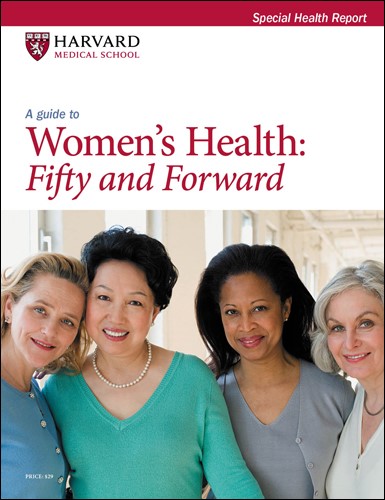Embryo donation: One possible path after IVF

For decades, in vitro fertilization (IVF) has enabled countless people to have children, often after years of disappointment. It's a complex process, medically and emotionally. Those embarking on an IVF cycle are often laser-focused on the baby they long for. Most hope a cycle will yield several embryos, because it frequently takes more than one embryo transfer to achieve a successful full-term pregnancy.
Any remaining embryos may offer the hope of future pregnancies and additional children. Yet remaining embryos also bring difficult decisions to the fore — if not immediately, then in subsequent years. The decisions one person, or a couple, makes might be divided into five paths. One path — donating embryos to another person or couple hoping for children — carries with it many questions. This path, and those questions, are the subject of this post.
A decision pathway for people who became parents through IVF
If you became a parent through IVF and have remaining embryos, you are not alone. Estimates vary on the number of cryopreserved embryos in the United States, but it's likely to be in the hundreds of thousands.
You may be among the many people or couples who plan to use their embryos, or among those whose family feels complete. And you may be starting to figure out what to do with your embryos, or you may be putting the decision on hold, paying for annual embryo storage and feeling no urgency to make a decision, since embryos can remain safely frozen for many years. Having "extras" in deep freeze may offer comfort, kind of a psychological insurance policy after years of disappointment and loss.
Sooner or later, though, most people find themselves at a decision point, considering these options:
- You can discard your remaining embryos. This may feel harder than you anticipated but absolutely doable. You see these embryos as part of the IVF process that enabled you to have your cherished child or children. The word "discard" sounds harsh, but you are not prepared to parent another child and do not see donating them to others as an option.
- You can decide to have an additional child. A larger family wasn't what you'd planned on or hoped for, but you see extra embryos as part of IVF, and a new child as meant to be. You look at the family you have and decide it is worth undergoing at least one more embryo transfer before making a final decision to discard.
- You can decide to donate your embryos to science. Unfortunately, if you begin to explore this, you'll discover there is no easy route for it. Perhaps you will choose to explore other possible pathways, or decide to focus on one of the other options.
- You can donate your embryos to another person or couple. For some, this feels natural: you have been given the gift of children and you want to pay it forward to others longing for pregnancy and parenthood. However, for many the decision to donate does not feel easy or natural. Rather, it poses a huge dilemma: you want to honor the embryos and offer them a chance at life, but you have unsettled feelings when you think of your genetic offspring being raised by another family.
- Not to decide is to decide. In listing options, it is important to acknowledge that some of your fellow IVF parents are deciding not to decide. They are among the many who have "abandoned" their embryos (the term clinics use for families that avoid contact). They stop paying their storage fees; they fail to respond to outreach calls and letters.
What questions arise if you choose to donate embryos to another family?
Writing in The New York Times about facing her own decision about unused embryos, author Anna Hecker said, "For me this far surpasses discomfort. I see it as a life-or-death decision, which makes it nearly impossible to make." Having worked with couples making this decision, I can attest that this sense of the "nearly impossible" passes over time, as people grapple with their choice and come to a place of clarity and peace.
Below are some — though not all — questions you are likely to confront as you think about donating embryos. If you are part of a couple, you can sort through these questions with your partner. (If you are single, the decision is yours to make.)
- How would we feel about another family raising a child created with our genes?
- Would it feel okay if we knew the family we donate to, or could that make it harder, seeing what might have been our child growing up with others as parents?
- Is this fair to the children involved? How will our children feel knowing they have full genetic siblings in another family? What will they make of the fact that it was the random choice of an embryologist who determined which embryo would land in our family and which in another?
- How will children who come from our donation feel? Will they feel displaced, like they landed in the wrong family? Will they, perhaps, feel a bit like a science-fiction project?
- How will we feel about possible challenges in the future: our child gets sick, the family we donate to gets divorced, we fervently disagree with the parenting style and values of the other family?
- If we decide to donate, how should we go about finding a family? Does geography or demographics matter — for example, will it feel good or more complicated to have them nearby? Should we donate to a same-sex couple, an older single woman, or others?
- Do we want to tell family members and friends of our decision to donate our embryos? If so, how much do we share of this information?
- If there are several embryos, do we donate all to the same family or divide them? For those who feel strongly about not wanting to discard embryos, it may be important to ensure that none are discarded when the receiving family feels complete.
- If our embryos were created with the help of donor eggs and/or sperm, should we seek permission or approval from the donor? How do we go about this if we do not have access to the donor?
These questions are complicated, best made over time and with care. While you may want to make the decision soon so that you can feel closure and move on as a family, I have found this is one instance in life when moving slowly, visiting and revisiting a decision, accepting doubt and the need to take pauses, all contribute to you eventually feeling the rightness of your decision.
About the Author

Ellen S. Glazer, LICSW, Guest Contributor
Disclaimer:
As a service to our readers, Harvard Health Publishing provides access to our library of archived content. Please note the date of last review or update on all articles.
No content on this site, regardless of date, should ever be used as a substitute for direct medical advice from your doctor or other qualified clinician.
















